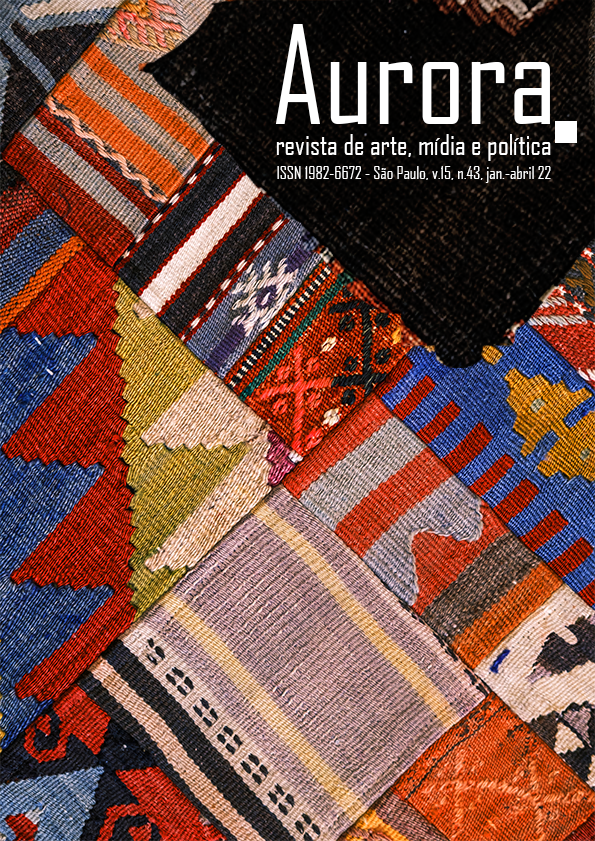Algorithms, artificial intelligence and free software in contemporary times
Reflections from Isaac Asimov's Foundation
DOI:
https://doi.org/10.23925/1982-6672.2022v15i43p24-44Keywords:
Algorithms, Artificial Intelligences, Free Software, Foundation, Isaac AsimovAbstract
The article builds a dialogue between concepts present in the series of books Fundação, by Isaac Asimov, and the contemporary reality, situated in the constant presence of technological devices based on algorithms and artificial intelligence (AI) in the daily lives of individuals. It is argued that, although the plot of the books takes place in a distant and hyperbolic fictional future, it is possible to reflect, based on ideas such as the laws of robotics and the axioms of psycho-history, on contemporary technological development, its reflexes in the production of subjectivities, in social life and in democratic processes. Finally, it is argued that, given the various ethical dilemmas generated by the relationship between societies and information and communication technologies (ICT), free software is a possible and efficient way for such coexistence to take place in a fairer way. , transparent and egalitarian.
References
ASIMOV, I. Fundação. Tradução: Eduardo Nunes Fonseca. São Paulo: Aleph, 2009a.
ASIMOV, I. Fundação e Império. Tradução: Eduardo Nunes Fonseca. São Paulo: Aleph, 2009b.
ASIMOV, I. Segunda Fundação. Tradução: Eduardo Nunes Fonseca. São Paulo: Aleph, 2009c.
ASIMOV, I. Limites da Fundação. Tradução: Norberto de Paula Lima. São Paulo: Aleph, 2009d.
ASIMOV, I. Fundação e Terra. Tradução: Ronaldo Sérgio De Biasi. São Paulo: Aleph, 2009e.
ASIMOV, I. Prelúdio à Fundação. Tradução: Braulio Tavares. São Paulo: Aleph, 2009f.
ASIMOV, I. Origens da Fundação. Tradução: Ronaldo Sérgio De Biasi. São Paulo: Aleph, 2009g.
ASIMOV, I. Eu, Robô. Tradução: Aline Storto Pereira. São Paulo: Aleph, 2015.
BRUNO, F. G.; BENTES, A. C. F.; FALTAY, P. Economia psíquica dos algoritmos e laboratório de plataforma: mercado, ciência e modulação do comportamento. Revista FAMECOS, v. 26, n. 3, p. e33095–e33095, 27 dez. 2019.
FARINACCIO, R. Como funcionam as Três Leis da Robótica do escritor Isaac Asimov em 2017? TecMundo, 2017. Disponível em: <https://www.tecmundo.com.br/ciencia/125150-funcionam-tres-leis-robotica-escritor-isaac-asimov-2017.htm>. Acesso em: 16 dez. 2020.
FEREGUETTI, L. 9 autores de ficção científica que previram tecnologias atuais Showmetech, 9 jun. 2019. Disponível em: <https://www.showmetech.com.br/autores-de-ficcao-cientifica-previram-futuro/>. Acesso em: 15 dez. 2020.
FUX, J. Os algoritmos e o fim do mundo Estado da Arte, 19 jul. 2020. Disponível em: <https://estadodaarte.estadao.com.br/algoritmos-fim-do-mundo-jacques-fux/>. Acesso em: 15 dez. 2020.
JORDAN, P. et al. Exploring the Referral and Usage of Science Fiction in HCI Literature. arXiv:1803.08395 [cs], v. 10919, p. 19–38, 2018.
KAUFMAN, D. Inteligencia artificial: repensando a mediação / Artificial intelligence: rethinking mediation. Brazilian Journal of Development, v. 6, n. 9, p. 66742–66760, 10 set. 2020.
MELLO, P. C. Empresários bancam campanha contra o PT pelo WhatsApp. Disponível em: <https://www1.folha.uol.com.br/poder/2018/10/empresarios-bancam-campanha-contra-o-pt-pelo-whatsapp.shtml>. Acesso em: 1 abr. 2021.
MELLO, P. C. A Máquina do Ódio: notas de uma repórter sobre fake news e violência digital. São Paulo: Companhia das Letras, 2020.
MOROZOV, E. Big Tech: a ascensão dos dados e a morte da política. São Paulo: Ubu, 2018.
ROUVROY, A.; BERNS, T. Governamentalidade Algorítmica e perspectivas de emancipação: o díspar como condição de individuação pela relação? In: Tecnopolíticas da Vigilância: perspectivas da margem. São Paulo: Boitempo, 2018.
SCIENTIFIC AMERICAN, B. Isaac Asimov: homens e robôs. Scientific American Brasil - Série Exploradores do Futuro, v. 3, 2005.
SILVEIRA, S. A. DA. Software livre: a luta pela liberdade do conhecimento. São Paulo: Editora Fundação Perseu Abramo, 2004.
SILVEIRA, S. A. DA. Revolução tecnológica, automação e vigilância - _comciência, 2018a. Disponível em: <https://www.comciencia.br/revolucao-tecnologica-automacao-e-vigilancia/>. Acesso em: 17 dez. 2020.
SILVEIRA, S. A. DA. Regulação algorítmica e os Estados democráticos - _comciência, 2018b. Disponível em: <https://www.comciencia.br/regulacao-algoritmica-e-os-estados-democraticos/>. Acesso em: 17 dez. 2020.
SILVEIRA, S. A. GOVERNO DOS ALGORITMOS. Revista de Políticas Públicas, v. 21, n. 1, p. 267, 26 jul. 2017.
TURING, A. M. I.—COMPUTING MACHINERY AND INTELLIGENCE. Mind, v. LIX, n. 236, p. 433–460, 1 out. 1950.
VIEIRA, K. Reconhecimento facial vira ameaça para negros; maioria entre presos. Disponível em: <https://www.hypeness.com.br/2019/11/reconhecimento-facial-vira-ameaca-para-negros-maioria-entre-presos/>. Acesso em: 18 dez. 2020.
ZUBOFF, S. Big Other: capitalismo de vigilância e perspectivas para uma civilização de informação. In: Tecnopolíticas da Vigilância: perspectivas da margem. São Paulo: Boitempo, 2018.
ZUIN, L. O poder da ficção científica na construção de futuros e tecnologias. Disponível em: <https://medium.com/up-future-sight/o-poder-da-fic%C3%A7%C3%A3o-cient%C3%ADfica-na-constru%C3%A7%C3%A3o-de-futuros-e-tecnologias-14acda0d5bc0>. Acesso em: 15 dez. 2020.
Downloads
Published
How to Cite
Issue
Section
License
Copyright (c) 2022 Aurora. Revista de Arte, Mídia e Política

This work is licensed under a Creative Commons Attribution-NonCommercial-ShareAlike 4.0 International License.










